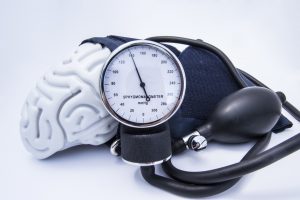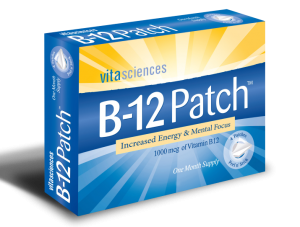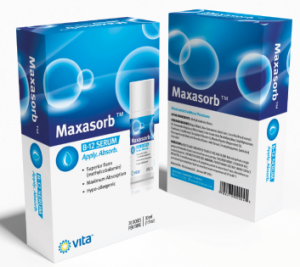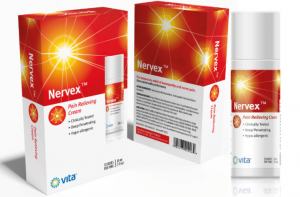 So much focus is placed on diet and exercise to stay healthy, that sometimes mental health care can be forgotten. However, the health of both mind and body is important to be in your best state of health. In fact, a recent report has found that being lonely may be a greater hazard to public health than obesity.
So much focus is placed on diet and exercise to stay healthy, that sometimes mental health care can be forgotten. However, the health of both mind and body is important to be in your best state of health. In fact, a recent report has found that being lonely may be a greater hazard to public health than obesity.
What is mental health?
Mental health considers the well-being of the emotional, social, and psychological parts of one’s life. Although mental health issues can affect the mood of a person, it can also impact important life factors. The way we feel can affect the way we think, act, make decisions, and how we handle relationships with others, among other things. Therefore, it mental health should be taken just as seriously as physical health.
How can being lonely affect your health?
A recent report has found that being lonely is a serious public health issue. The health insurance company Cigna reports that most American adults consider themselves lonely, or feel disconnected from the world and people around them. Younger American, such as those in Generation Z and millennials, report being the most lonely.
Since loneliness is not necessarily a condition on your diagnosis sheet, health care providers may overlook it. However, left untreated, loneliness can lead to more serious mental health conditions such as depression. Experts suggest “social cognitive retraining” to combat loneliness. This is because the brains of lonely people can make the negative feelings worse if left untreated. A qualified psychologist or psychiatrist can perform this type of brain retraining.
Ways to help improve your mood
If you feel that your lonely mood is starting to affect your daily life and relationships, then you should contact a health care provider or counselor to get proper treatment. However, if you feel that your lonely feeling is in its early stages, then you may be able to take steps to improve this feeling on your own.
- Extend yourself in the community: By volunteering or attending social events, you can feel more engaged in your community. This can help you feel less lonely and perhaps make some new friends and contacts.
- Find groups to join that involve your hobbies: Whether you like to read, run, or play music, find local groups in your community to join. These groups can help you meet like-minded people that like the same things that you do. This can help you get out of your comfort zone at home a little and find others to talk with that you have something in common with. One app to help with this is Meetup, which provides you access to local clubs and events in your community.
- Take a mood lifter supplement: Elevia by Vita Sciences is a mood lifting supplement. It contains compounds such as GABA (gamma amino butyric acid) and 5-HTP that research shows to calm the mind and body, while boosting levels of the feel good hormone serotonin.
- Stay positive: As the saying goes, energy creates energy. If you exude negative energy, then that negative energy will likely remain within you. However, if you go into life and situations with a positive attitude, then it is likely that before long, that positive energy will become a part of you. Certain mental health issues may make staying positive nearly impossible. However, with the help of a mental health professional, counselor, and a network of family and friends to reach out to, you can start to create more positive energy in your life and mind.
Be sure to call the following hotlines if you are experiencing a mental health crisis or have questions about getting started on treatment for your mental health condition.
- Substance Abuse and Mental Health Services Administration (SAMHSA) National Helpline: 1-800-662-HELP (4357)
- National Alliance on Mental Illness (NAMI) Helpline: 1-800-950-NAMI (6264)
Sources:
Loria, K. ( June 3, 2018) “Loneliness may be a greater public health hazard than obesity- here are 4 psychology-backed tips to combat it.” Business Insider, http://www.businessinsider.com/how-to-feel-less-lonely-2018-5
U.S. Department of Health and Human Services (August 29, 2017) “What is Mental Health?”
 Sleep is a precious commodity in your busy life. Between work, taking care of loved ones, and running errands, it is a wonder you find time to sleep at all. However, it is important to make time for sleep because of all of the health benefits adequate sleep can provide. A recent study suggests that making a to-do list may help ease your mind so you can capture more sleep.
Sleep is a precious commodity in your busy life. Between work, taking care of loved ones, and running errands, it is a wonder you find time to sleep at all. However, it is important to make time for sleep because of all of the health benefits adequate sleep can provide. A recent study suggests that making a to-do list may help ease your mind so you can capture more sleep. you have high blood pressure, heart disease may be the health concern most on your mind. However, high blood pressure can be a risk factor for more than just heart conditions. A recent study has found that women in their 40’s with high blood pressure have an increased risk of dementia.
you have high blood pressure, heart disease may be the health concern most on your mind. However, high blood pressure can be a risk factor for more than just heart conditions. A recent study has found that women in their 40’s with high blood pressure have an increased risk of dementia. When you hear about brain health, you may think of lowering stress and anxiety. However, having a healthy brain also involves reducing risk of stroke as well as memory conditions like Alzheimer’s and dementia. A recent report has found that keeping your body healthy is vital to keeping your brain healthy.
When you hear about brain health, you may think of lowering stress and anxiety. However, having a healthy brain also involves reducing risk of stroke as well as memory conditions like Alzheimer’s and dementia. A recent report has found that keeping your body healthy is vital to keeping your brain healthy. are? If you are a young adult, it is very likely that these questions have not been at the forefront of your mind when it comes to your health. A recent study showed that in 2013-2014, only half of the 6.7 million young adults from 18 to 39 years old were treated for high blood pressure. Meanwhile, only 40-percent got their blood pressure under control. However, blood pressure control is not only important for heart health, but for brain health as well. Recent studies have linked normal blood pressure levels with improved cognition in older adults.
are? If you are a young adult, it is very likely that these questions have not been at the forefront of your mind when it comes to your health. A recent study showed that in 2013-2014, only half of the 6.7 million young adults from 18 to 39 years old were treated for high blood pressure. Meanwhile, only 40-percent got their blood pressure under control. However, blood pressure control is not only important for heart health, but for brain health as well. Recent studies have linked normal blood pressure levels with improved cognition in older adults. difficult. A recent study has found that low estrogen levels in some women may be linked to depression.
difficult. A recent study has found that low estrogen levels in some women may be linked to depression. with depression learn more about the condition. Also, this foundation helps support research efforts to find better treatments for those with depression.
with depression learn more about the condition. Also, this foundation helps support research efforts to find better treatments for those with depression. Do you spend most of your time indoors? Does your job involve sitting at a desk all day seeing only the light from your desk lamp? If you do work indoors often, do you find yourself getting easily tired, maybe having joint aches and pains, or trouble controlling your blood glucose levels? A recent study has found that your office job could be robbing you of the sunshine vitamin D and may be in turn causing a vitamin D deficiency.
Do you spend most of your time indoors? Does your job involve sitting at a desk all day seeing only the light from your desk lamp? If you do work indoors often, do you find yourself getting easily tired, maybe having joint aches and pains, or trouble controlling your blood glucose levels? A recent study has found that your office job could be robbing you of the sunshine vitamin D and may be in turn causing a vitamin D deficiency.


